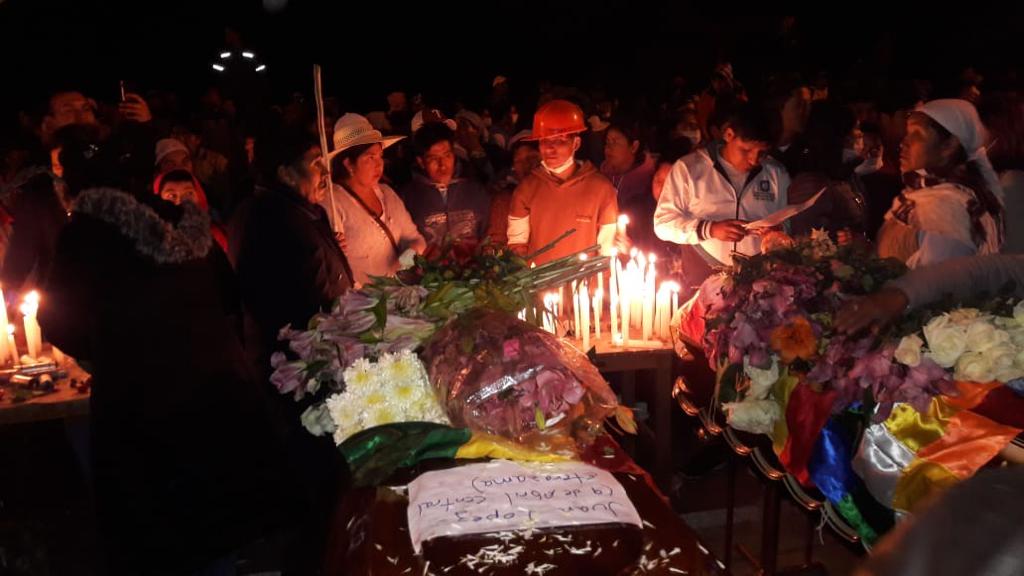Media Contacts:
Thomas Becker: thomas@humanrightsnetwork.org
Joshua Petersen: media@humanrightsnetwork.org
Dana Walters: dwalters@law.harvard.edu

Advocates call for a stop to state repression and violence, a turn to accountability and a clear path to free and fair elections.
(Cambridge, MA, July 27, 2020) –– Four days after the Interim Bolivian Government suspended elections again, Harvard Law School’s International Human Rights Clinic and the University Network for Human Rights (UNHR) released a report on the gross human rights abuses carried out under Bolivia’s interim President, Jeanine Áñez. The report documents one of the deadliest and most repressive periods in the past several decades in Bolivia as well as the growing fear of indigenous peoples and government critics that their lives and safety are in danger. “We have identified very troubling patterns of human rights violations since the Interim Government took power. These abuses create a climate where the possibility of free and fair elections is seriously undermined,” said Thomas Becker, an international human rights attorney with UNHR and 2018-2020 clinical instructor in HLS’s International Human Rights Clinic. Áñez assumed power on November 12, 2019 with the mandate of calling new elections by January Under her administration, Bolivia has endured a surge of human rights violations. Shortly after Áñez took power, state forces carried out operations that killed at least 23 Bolivian civilians, all indigenous, and injured over 230. These casualties make November 2019 the second-deadliest month in terms of civilian deaths committed by state forces since Bolivia became a democracy nearly 40 years ago. Since November, the interim government has continued to persecute people that it perceives to be outspoken opponents of the Áñez administration. The government has intimidated the press, shutting down critical news outlets and arresting “seditious” journalists. Áñez’s forces have arrested or detained hundreds of former politicians for vague crimes such as “sedition” and “terrorism.”
The Harvard and UNHR report offers recommendations to the interim government to enforce its domestic and international obligations. First among these recommendations is that the interim government fulfill its commitment to hold free and fair presidential elections as quickly as possible.
“We are spiraling deeper into authoritarianism,” warned Felipa López Apaza, whose brother Juan was killed in Black November. “We need elections as soon as possible or they will keep coming after us.”
#
About the International Human Rights Clinic at Harvard Law School: The International Human Rights Clinic at Harvard Law School works to protect the human rights of clients and communities around the world. Through supervised practice, students learn the responsibilities and skills of human rights lawyering.
About the University Network for Human Rights: The University Network for Human Rights partners with advocacy organizations and communities affected or threatened by abusive state, corporate, or private conduct to advance human rights at home and abroad. The University Network also facilitates supervised engagement in the practice of human rights at colleges and universities in the United States and
across the globe; trains undergraduate students in interdisciplinary human rights protection and advocacy; and collaborates with academics and human rights practitioners in other parts of the world to foster practical, interdisciplinary programs in human rights.
Learn more at http://hrp.law.harvard.edu/. Follow the Clinic on social media: Human Rights Program at Harvard Law School on Facebook, @HarvardLawHRP on Twitter, and humanrightsharvardlaw on Instagram.
Learn more at https://www.humanrightsnetwork.org. Follow UNHR on social media: United for Rights on Facebook and @UnitedforRights on Twitter.
